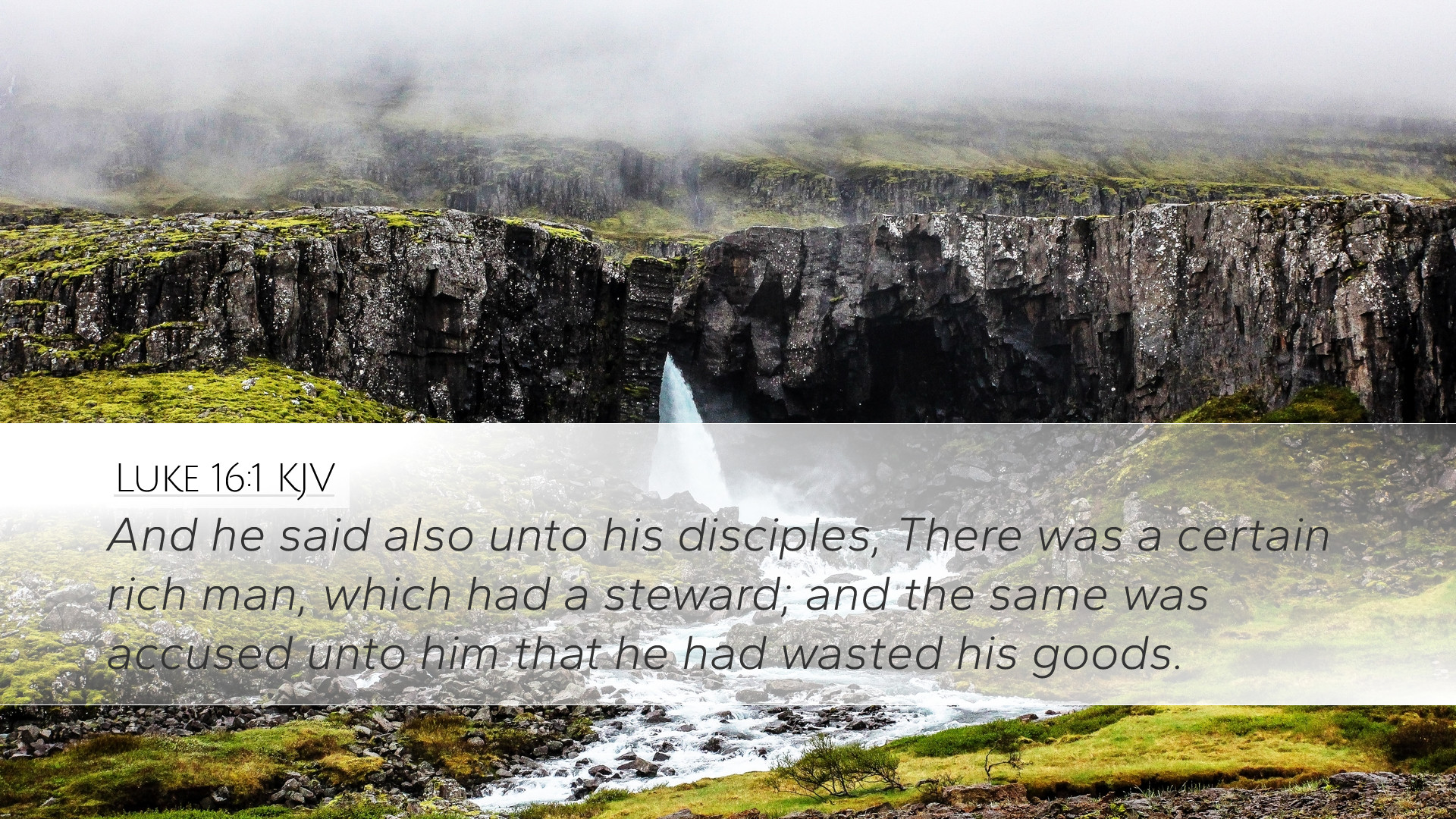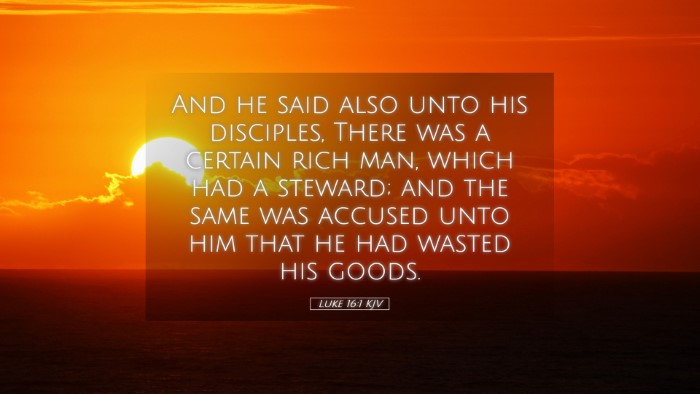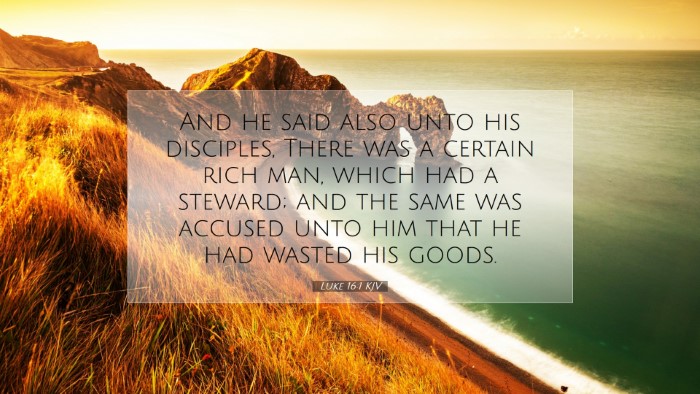Commentary on Luke 16:1
Luke 16:1 states:
“And he said also unto his disciples, There was a certain rich man, which had a steward; and the same was accused unto him that he had wasted his goods.”
Introduction
This verse serves as the prelude to one of Jesus' parables, known as the Parable of the Unjust Steward. Understanding this parable involves delving into the nature of stewardship, accountability, and the gray areas of moral dilemmas faced in the management of resources. Through insights from notable public domain commentaries, we can explore its implications for us today.
Contextual Understanding
This parable is part of a larger discourse in the Gospel of Luke focusing on wealth, stewardship, and the nature of God’s kingdom. Having previously dealt with the issues of wealth in the context of the Pharisees, this narrative serves to illustrate deeper moral truths concerning how followers of Christ are to handle the material resources entrusted to them.
Matthew Henry’s Insight
Matthew Henry elaborates on this stewardship as a divine appointment. He notes:
- The Rich Man: Represents God or those in authority who grant resources to stewards.
- The Steward: Symbolizes humanity’s role in managing God’s gifts — our resources, talents, and time.
- The Accusation: Illustrates the accountability expected from all stewards; our actions with God's gifts matter.
Henry emphasizes the importance of recognizing the responsibility that comes with the possession of wealth and resources, warning against wastage and mismanagement.
Albert Barnes’ Perspective
Albert Barnes highlights the significance of the steward’s role. He points out:
- Stewardship in the Kingdom: The steward is entrusted with significant responsibilities, much like believers are charged with the management of God’s provisions.
- The Nature of Financial Responsibility: Barnes explains how the parable illustrates the need for prudence in financial dealings, advising against frivolous or wasteful behavior.
- Divine Discernment: Barnes suggests that the rich man represents God's knowledge of our stewardship; He is aware when we fail in our duty.
Through Barnes’ commentary, readers are reminded that earthly wealth is a trust from God, demanding faithful management.
Adam Clarke’s Analysis
Adam Clarke presents a detailed exegesis of the structure and intent of this parable:
- Social Dynamics: Clarke notes the cultural implications of the steward's failure, reflecting on societal expectations and the immediate consequences of negligence.
- Spiritual Application: He draws parallels between the steward’s situation and the spiritual state of individuals today, urging reflection on how one's life demonstrates faithfulness to God.
- The Fact of Accountability: Clarke states that the steward's dismissal is critical; it illustrates a necessary separation between those who handle resources wisely and those who squander them.
Clarke’s emphasis on the relational dynamics between the steward and the rich man serves to amplify the importance of integrity and transparency in our engagements with possessions.
Theological Implications
The parable, starting with this verse, offers profound theological implications regarding the nature of God’s expectations for His people. The following aspects warrant theological reflection:
- God as the Ultimate Authority: The figure of the rich man is poignant, underscoring God's ultimate authority in our lives and over the resources we possess.
- Human Responsibility: The steward's actions highlight our human responsibility; we are accountable for how we use what has been given to us.
- Moral Integrity in Stewardship: Both material and spiritual resources require ethical consideration and should be handled with care and integrity.
Practical Applications
For pastors, theologians, and students, the teachings embodied in Luke 16:1 challenge us to reflect on practical applications:
- Everyday Stewardship: Recognizing that stewardship extends beyond financial realms; it includes time, talents, and moral decisions.
- Communal Responsibility: Encouraging congregations or groups to collectively support and manage church resources or community outreach efforts.
- Teaching Values: Pastors should teach the principles of godly financial management and responsible stewardship as a reflection of one’s faithfulness to God.
- Self-examination: Regularly assessing one’s own life choices in terms of how well they align with God’s expectation for stewardship.
Conclusion
Luke 16:1 serves not just as an introduction to a parable, but as a profound statement on the accountability of believers in managing the resources entrusted to them by God. Through the insightful perspectives of Matthew Henry, Albert Barnes, and Adam Clarke, we glean a comprehensive understanding of the complexities involved in stewardship. As we reflect on our lives, let us strive to use our resources wisely, always aiming to honor God in our responsibilities.


